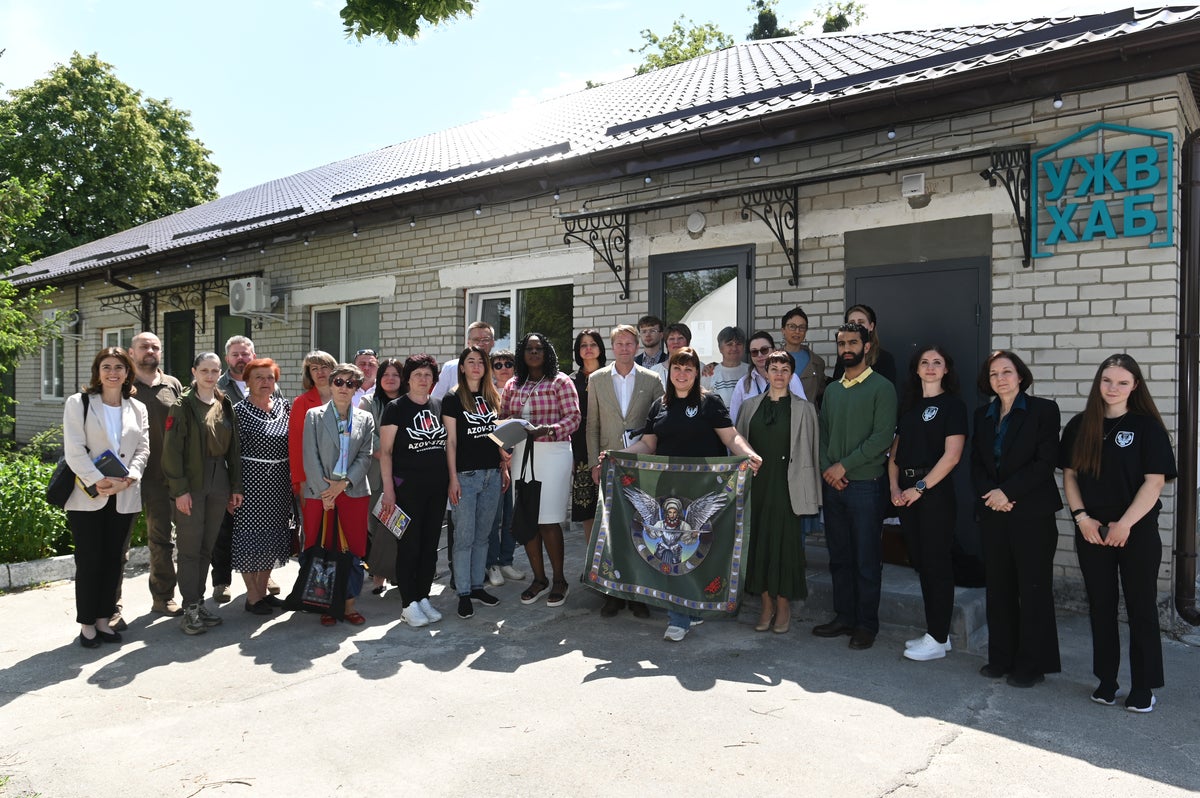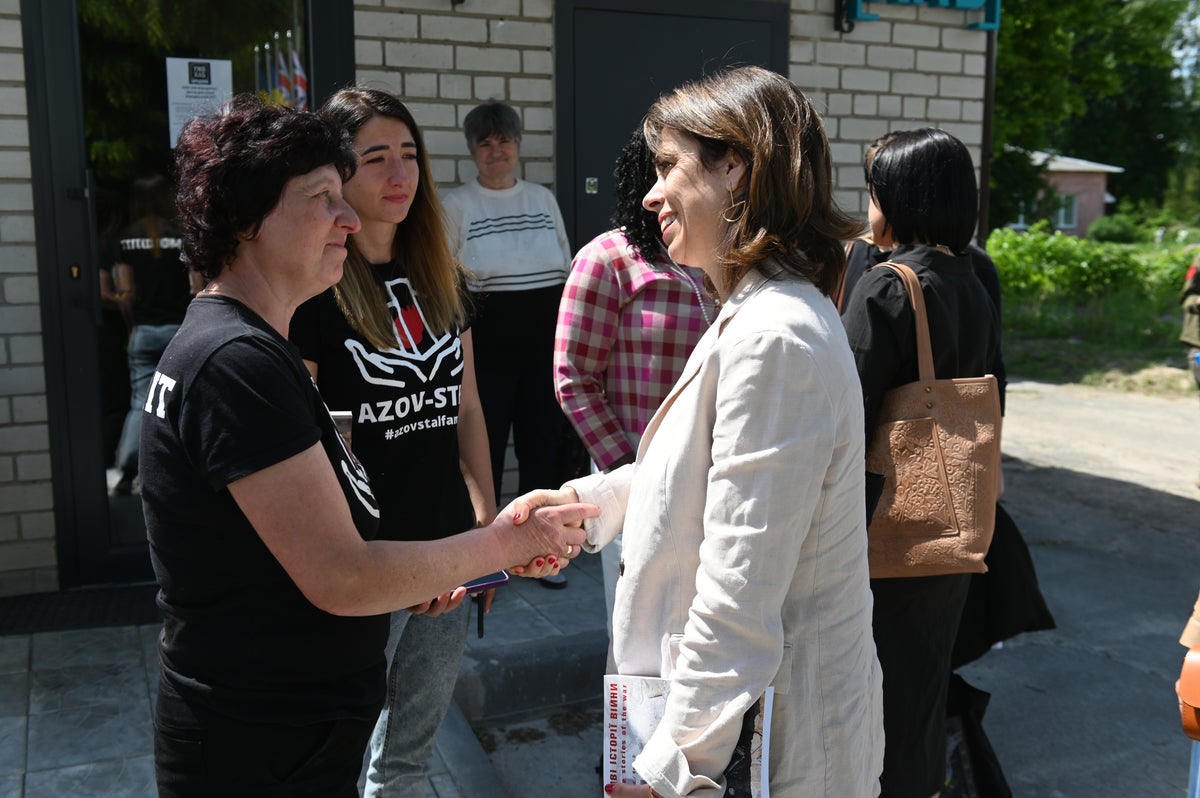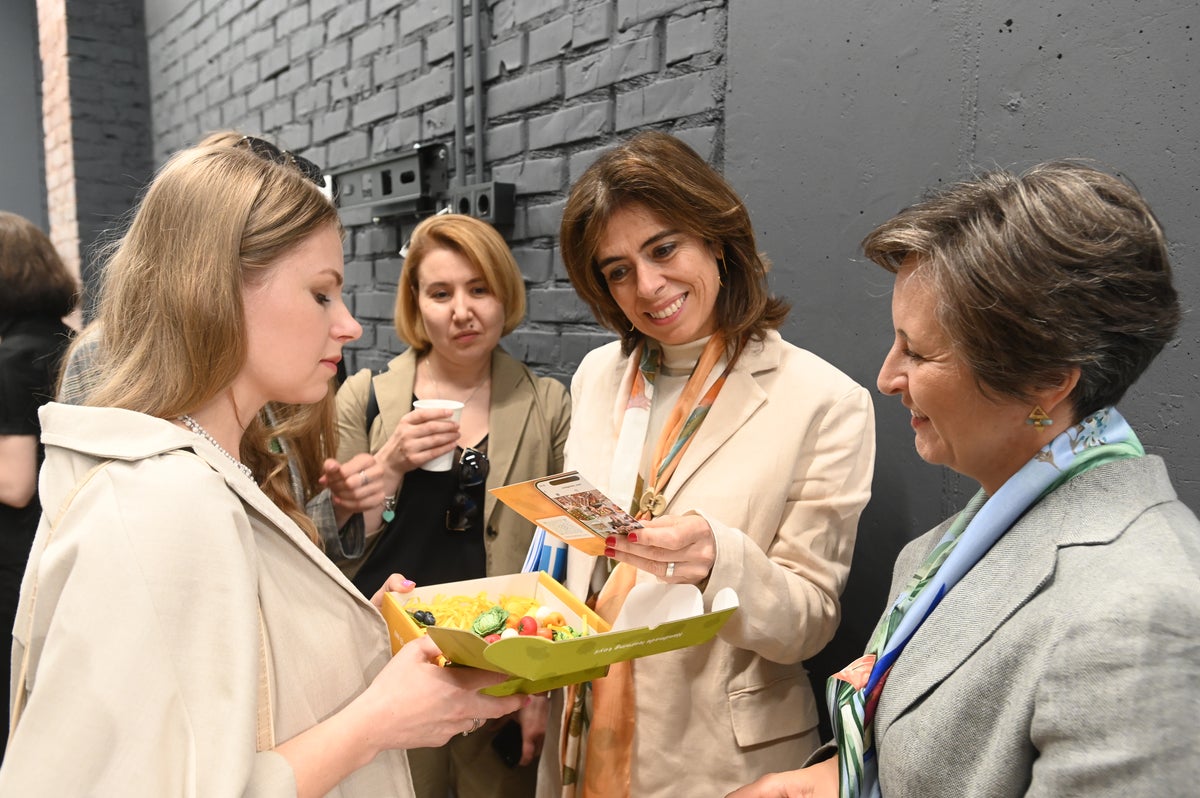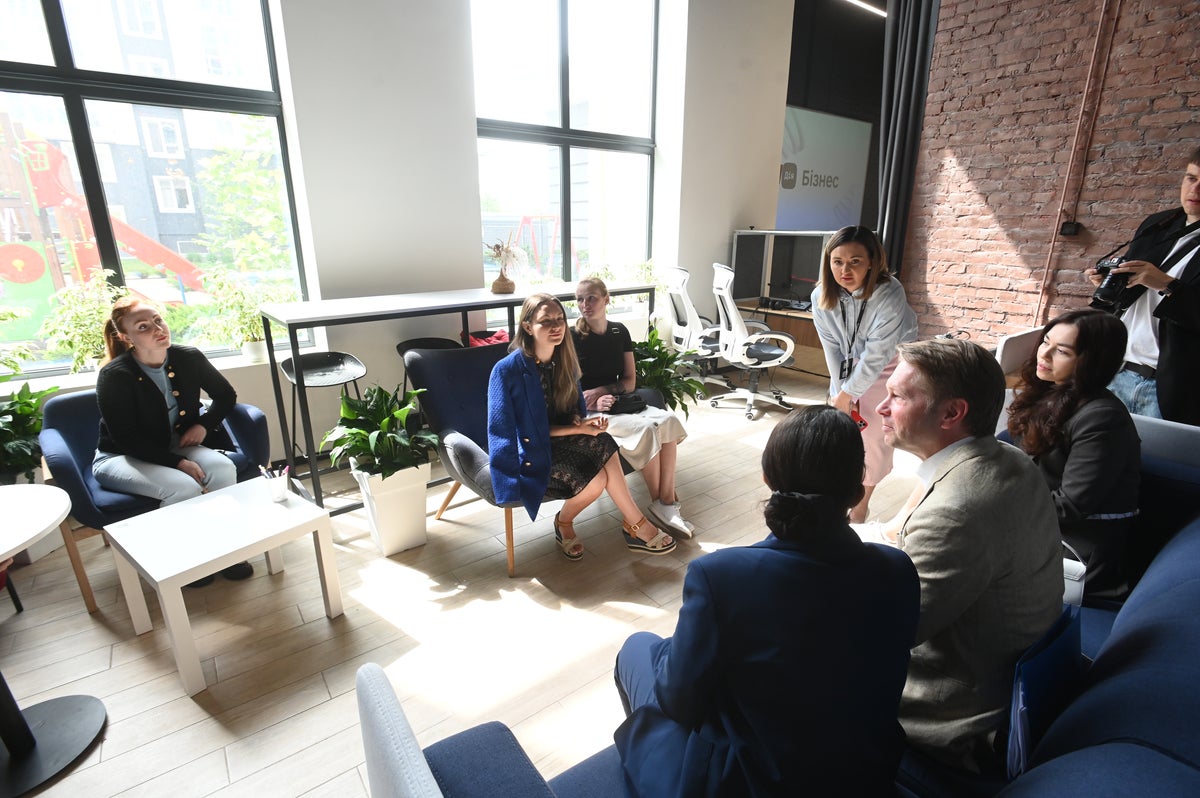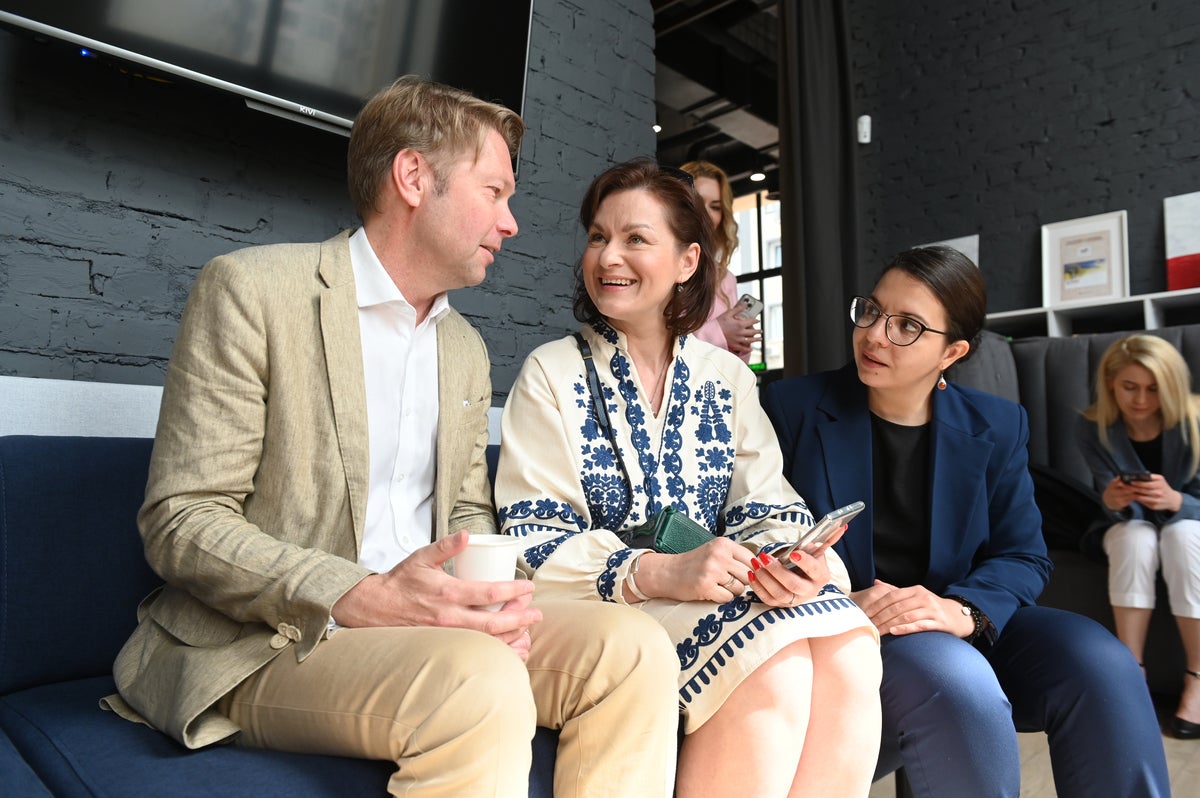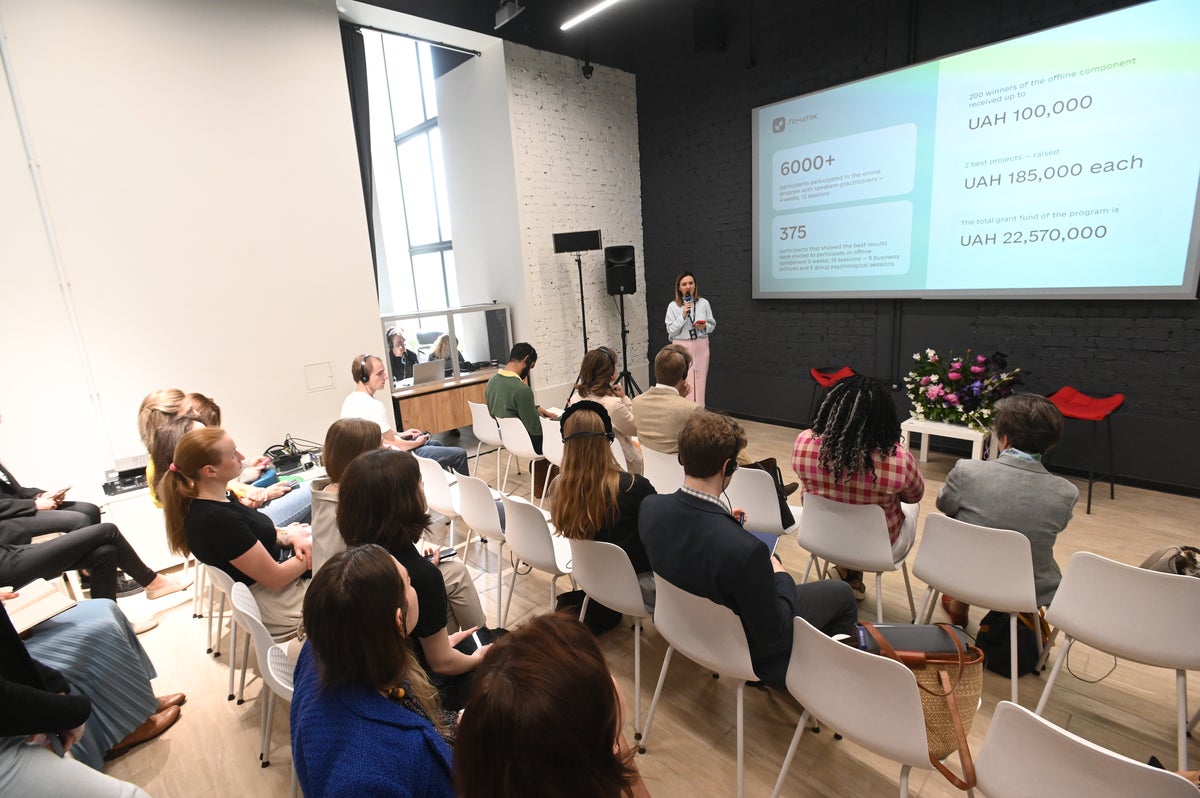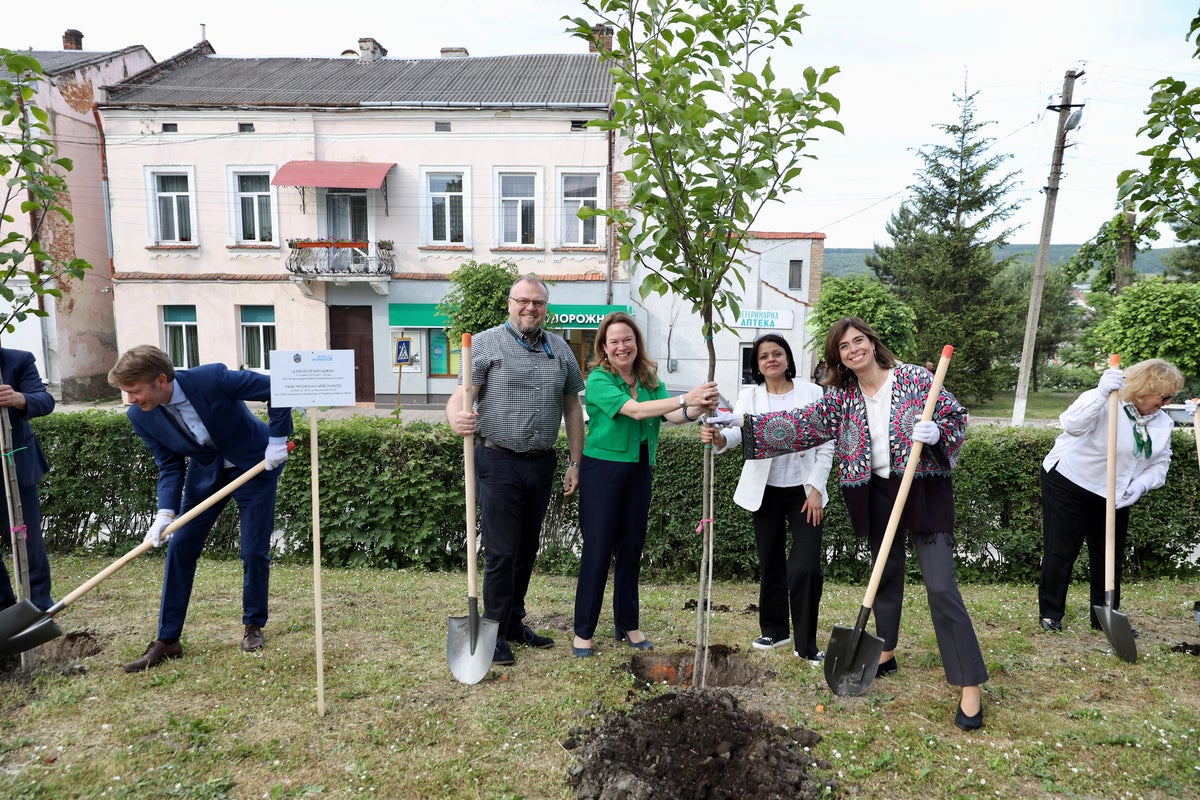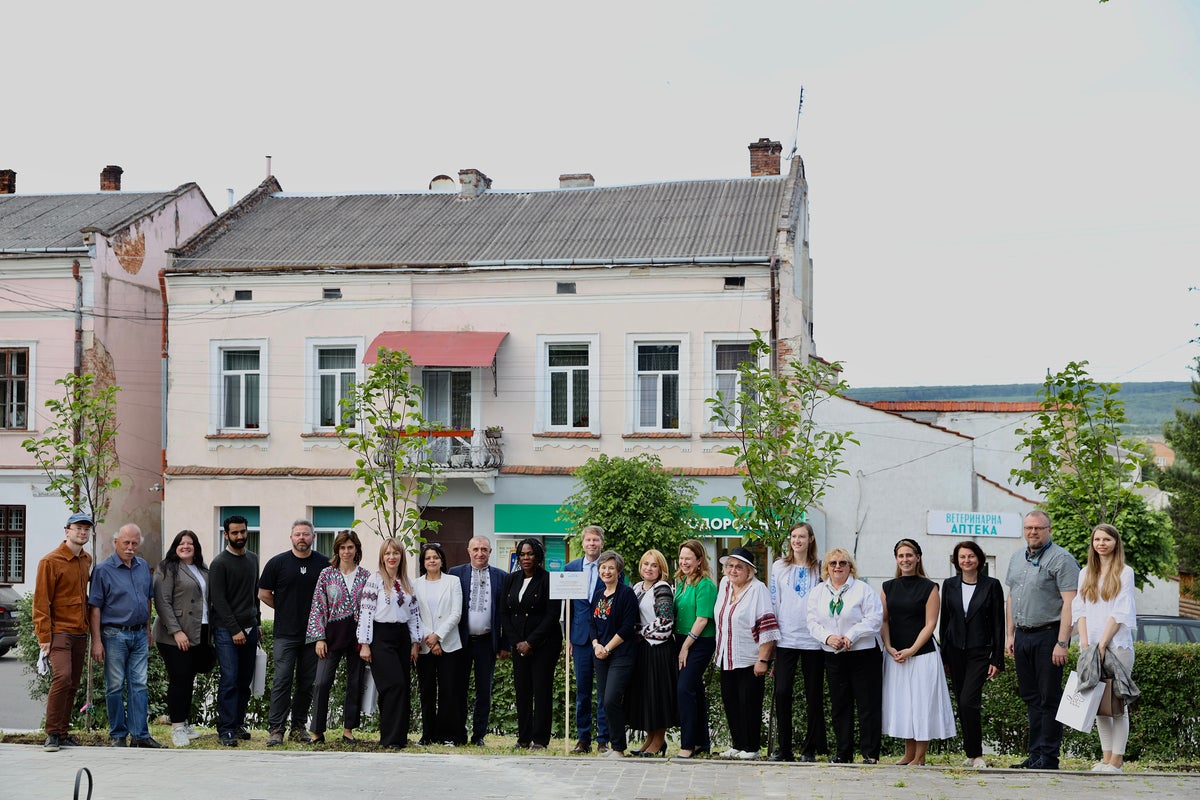The UN Women Executive Board observes Ukraine’s resilience and gender-responsive recovery efforts
Date:
The UN Women Executive Board, which serves as the governing body of UN Women and provides intergovernmental support and supervision of the organization’s operational activities, conducted a field visit to Ukraine from May 19 to 22, 2024. The purpose of the visit was to gain a deeper understanding of the repercussions of Russia’s war on women and girls, focusing on their needs, UN Women's support mechanisms, and its role in advancing gender equality and women's empowerment, thereby contributing to a gender-responsive recovery.
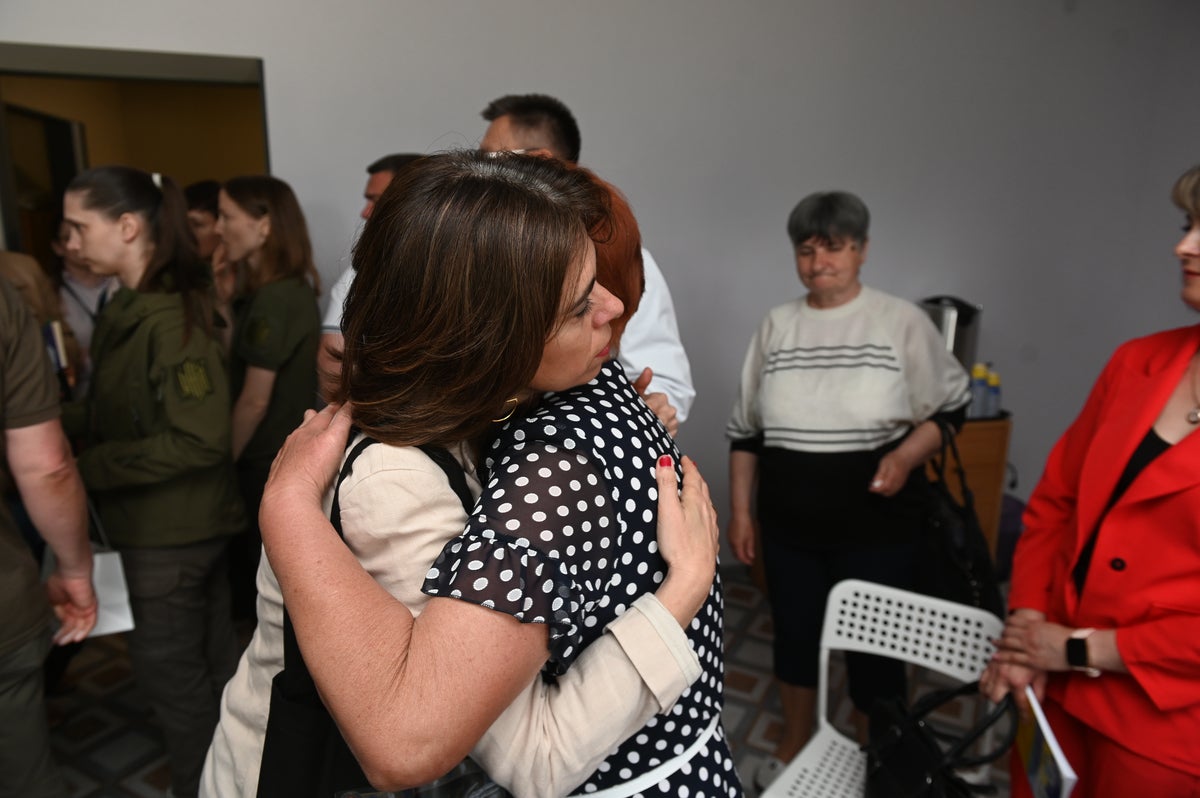
Russia's invasion of Ukraine has disproportionately affected women and girls, with women constituting the majority of refugees. Among the estimated 3.7 million internally displaced persons (IDPs), 56 percent are women, facing challenges in accessing vital resources such as housing, social services, food, sexual and reproductive health services, employment, and other essential services. Additionally, out of the 14.6 million individuals requiring humanitarian aid in 2024, almost 60 percent are women and girls.
The Executive Board’s visit commenced with a series of meetings with government partners, including discussions with the Government Commissioner for Gender Policy Kateryna Levchenko and Iryna Postolovska, Deputy Minister of Social Policy on European Integration of the Ministry of Social Policy of Ukraine. Key topics included national mechanisms for ensuring gender equality, gender mainstreaming in Ukraine's recovery and European integration efforts, initiatives combatting sexual violence related to Russia’s invasion, and the implementation of the National Action Plan 1325 on Women, Peace, and Security.
H.E. Andreas von Uexküll, Ambassador and Deputy Permanent Representative of Sweden to the United Nations, emphasized the critical need for continued support for Ukraine on all international platforms. “We are aware of the challenges, difficulties, and tragedies you face daily, and how you have opened your homes to IDPs who are experiencing even greater hardships and have had to flee their homes. The Swedish people and the Swedish government are committed to supporting Ukraine and the Ukrainian people,” said Andreas von Uexküll.
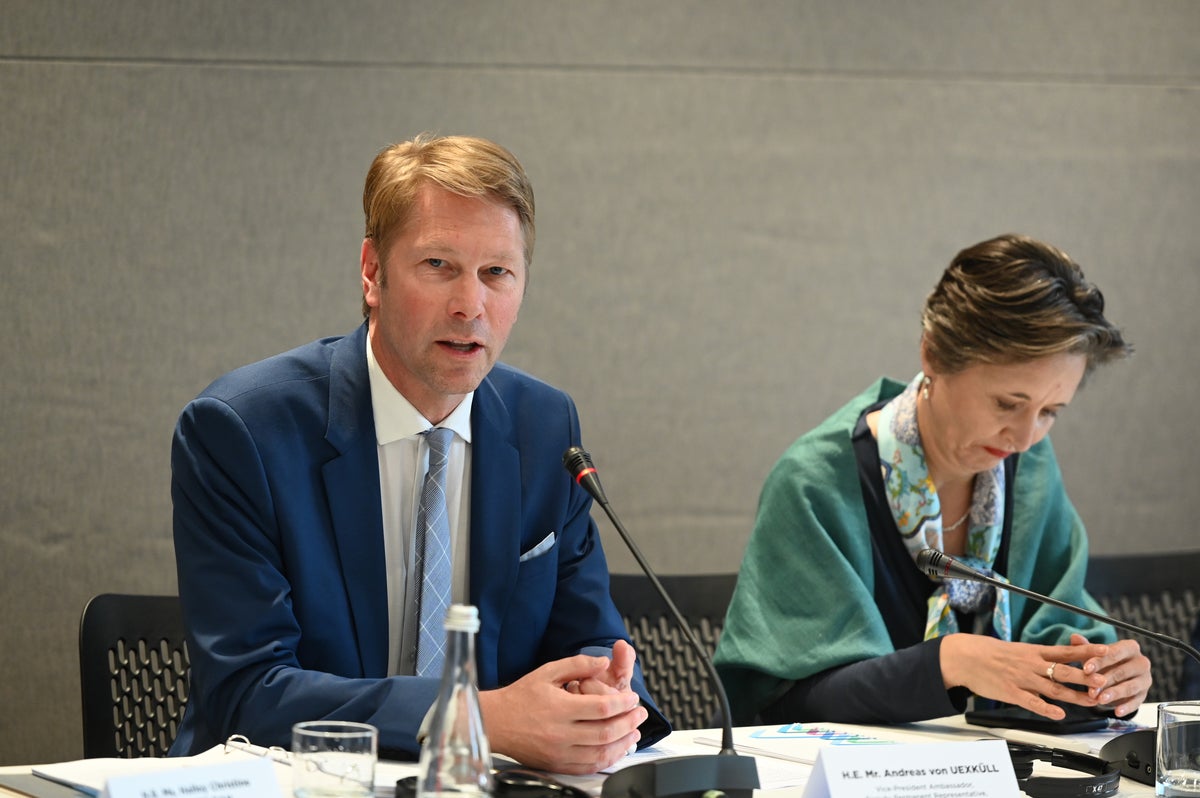
The Executive Board also met with Olena Kondratiuk, Deputy Speaker of the Parliament and members of the parliament, discussing critical topics such as advancing gender equality within the Parliament, ensuring the safety of Ukrainian civilians and prisoners of war in regions under Russian occupation, and implementing conventions aimed at addressing conflict-related sexual violence. The integration of gender perspectives across all recovery sectors was a key topic in dialogues with both government bodies and women's civil society organizations.
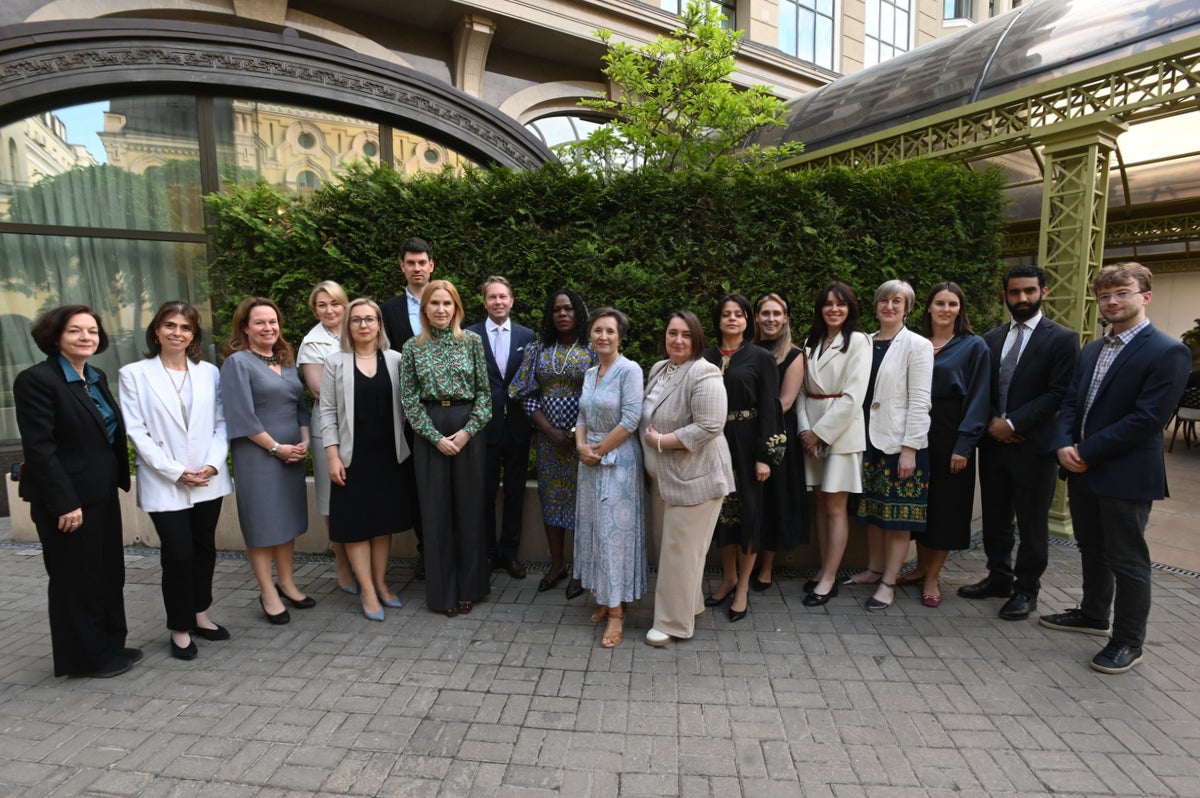
Additionally, beneficiaries of the UN Women-led programmes promoting women's empowerment and entrepreneurship, as well as residents of Borodyanka and Bucha, areas formerly occupied by Russian forces, shared firsthand accounts of survival and resilience.
Despite the challenges posed by Russian aggression, Ukrainian women have assumed increasingly crucial roles. Women-led organizations have become key players in delivering humanitarian aid, providing support to local communities, actively engaging in armed resistance efforts, and bolstering the economy. Moreover, the entrepreneurial spirit among Ukrainian women is evident, with one out of every two businesses in Ukraine being founded by a woman. In 2023 alone, Ukrainian women started over 10,000 new companies.
Belén Sanz Luque, Regional Director for UN Women Europe and Central Asia, inspired by the resilience demonstrated by the women, highlighted their vital role in gender-responsive recovery, economic empowerment, humanitarian response, and community development. “Their ability to navigate adversity with courage and determination is a testament to the enduring spirit of Ukrainian women. In the face of challenges, they continue to stand as pillars of resilience, driving positive change and fostering greater inclusivity and progress within their communities and beyond,” emphasized Belén Sanz Luque.
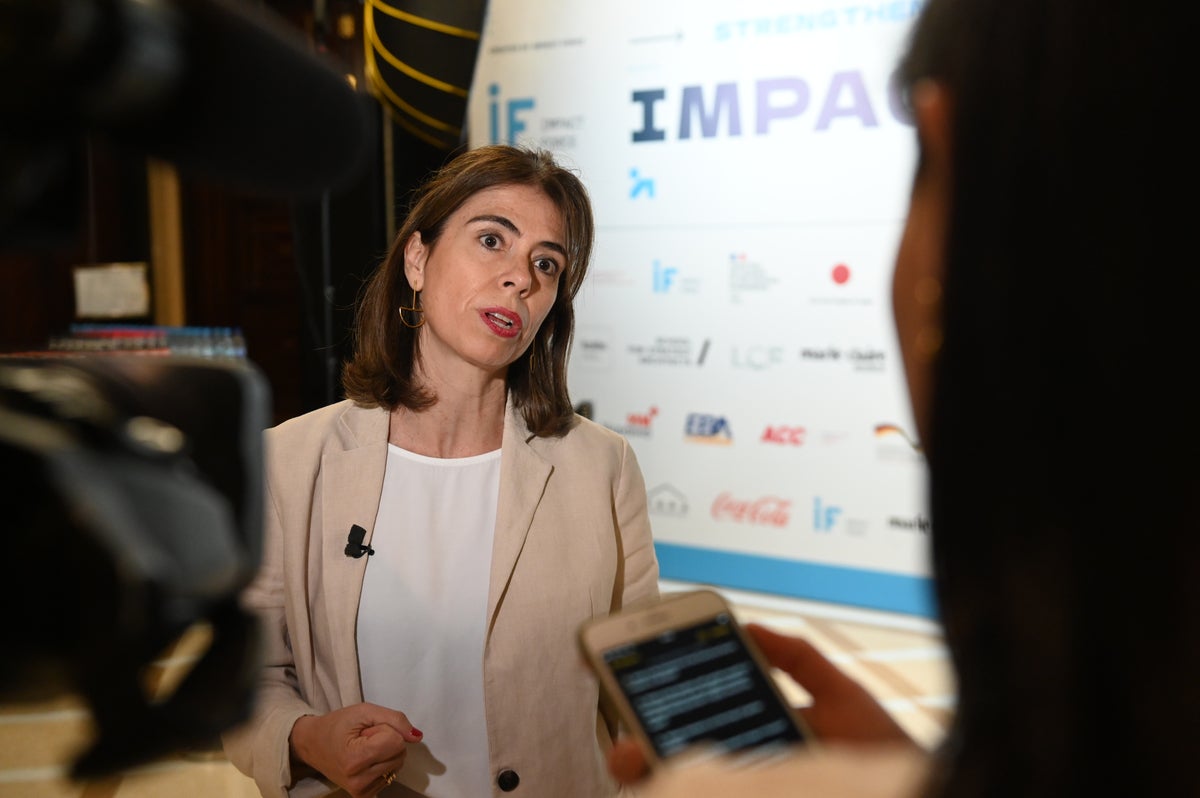
Sabine Freizer Gunes, UN Women representative in Ukraine, pointed out that the country has made significant strides towards achieving gender equality in various spheres. “However, despite these advancements, there remain critical areas where further progress is imperative, particularly concerning decision-making at the highest levels of governance. Empowering women to take on leadership roles in decision-making processes is crucial for promoting a gender-responsive recovery,” concluded Sabine Freizer Gunes.
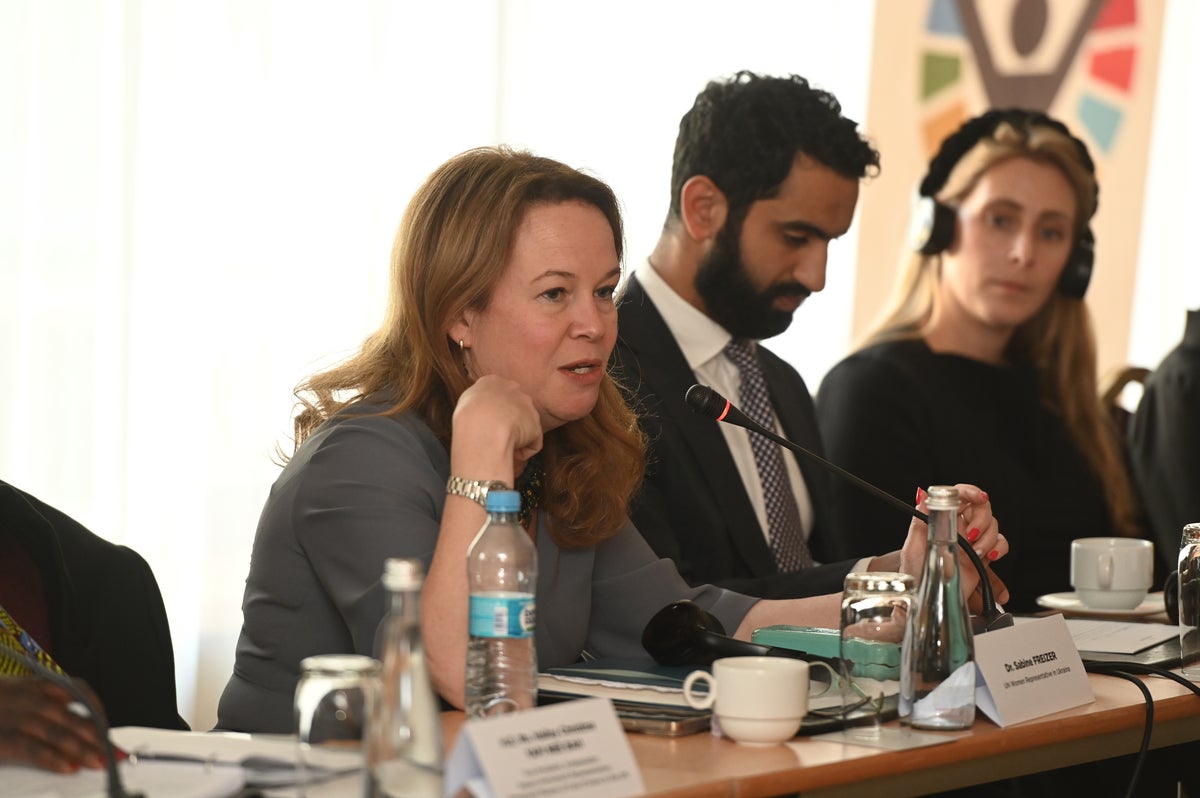
Three thematic roundtables were convened, focusing on diverse subjects such as conflict-related sexual violence, women's economic empowerment and leadership, and the challenges faced by vulnerable groups, including Roma women, HIV-positive women, internally displaced women, and rural women. These discussions highlighted the pressing needs, resilience, and the evolving roles of women in Ukraine's transformative journey amid adversity.
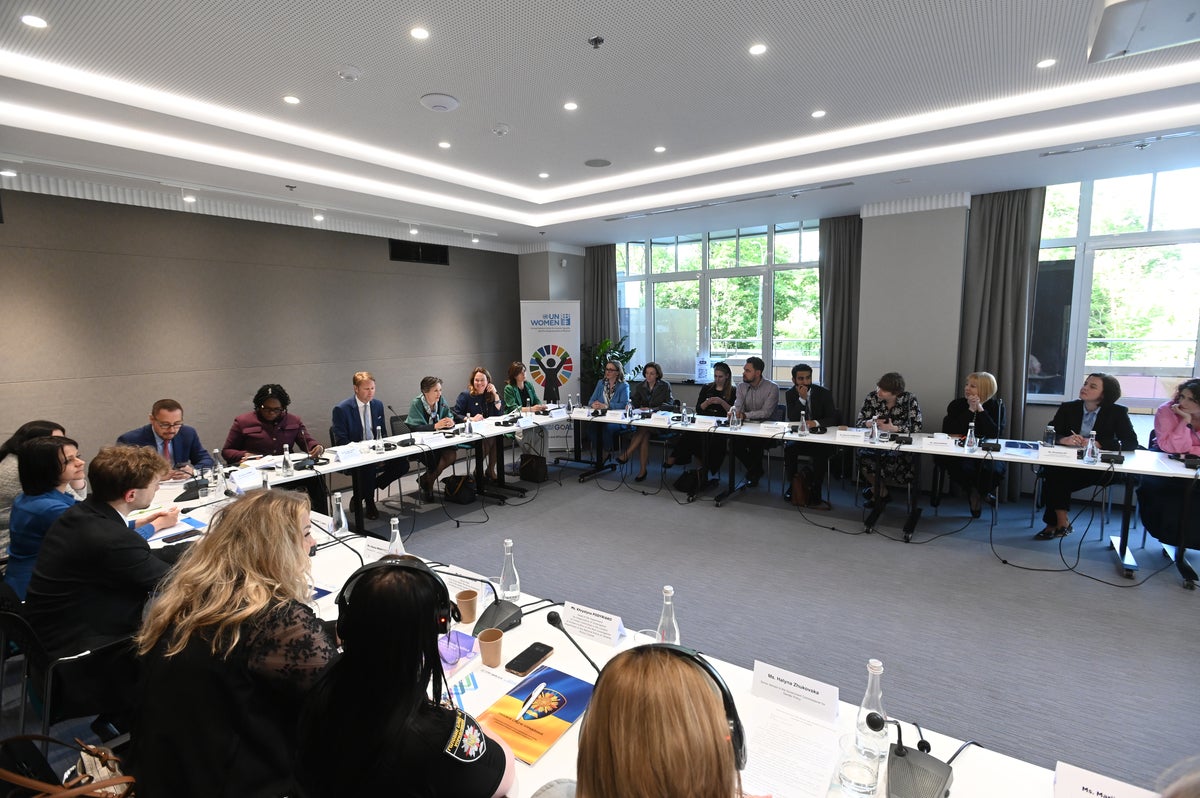
Sofia Burtak, founder of the Rural Women non-governmental organization “Business Network” said that rural women do not have much space and are not represented on platforms where they can speak about their challenges. “Sixty-eight percent of the women in our network do not participate in any activities or programmes because most programs are urban. They also have a lot of fears, so we try to give them more protection, more knowledge, and economic rights, and encourage them to go into entrepreneurship. I believe that women can only be empowered if they’re economically independent,” mentioned Sofia Burtak.
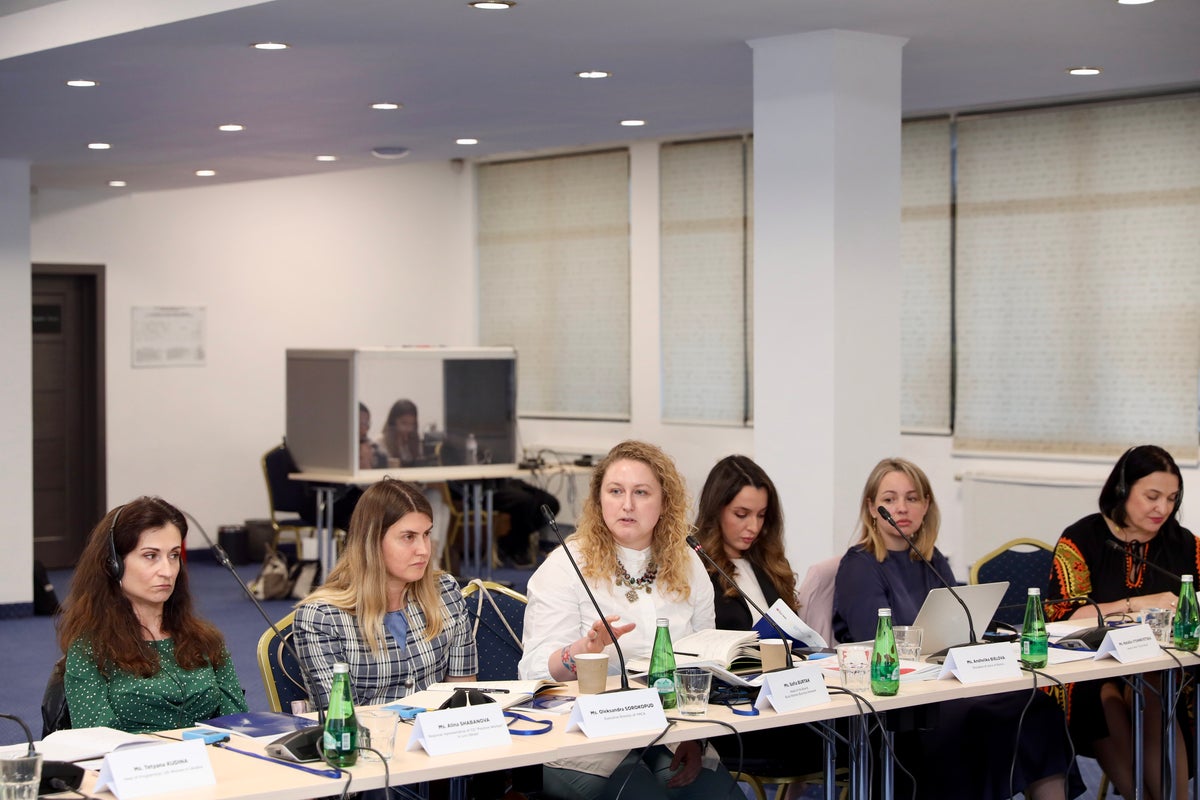
In conclusion, Lilia Kislitsyna, president of the non-governmental organization “Smarta,” reiterated the importance of preparing Ukrainian women to participate in reconstruction and active political life. “We need to move from rescue to peacebuilding,” said Lilia Kislitsyna.
This field visit underscored UN Women's unwavering commitment to advancing gender equality and women's empowerment in Ukraine, even amid formidable challenges posed by war and humanitarian crises.









